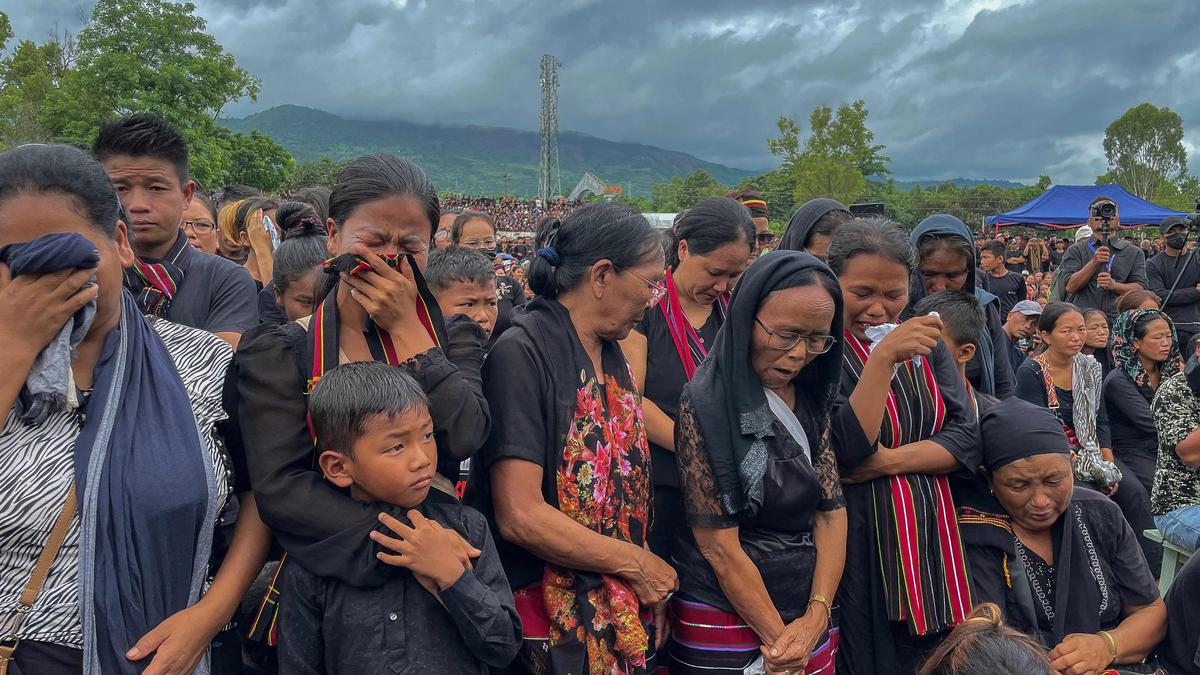
Every act of silence amplifies the horrors in Manipur Premium
The Hindu
Resolution of the issues in Manipur must involve the key players but that could still be a long way away if there is apathy
The images and graphic accounts of the Kuki-Zo women who were stripped, paraded, and harmed by mobs and thugs have swept across the country and the world. They make us not only deeply ashamed but also angry about the fact that such terrible incidents continue to happen in India, for our leaders spare no moment to inform us of India’s world power aspirations, its presidency of the G-20 and growing economy. We are reminded by politicians that sexual violence occurs across the country. Does that make it acceptable? Nothing of the sort.
Ordinary people have joined protests against the incidents, from Goa to Guwahati and Delhi to Shillong, demanding justice, holding placards, lighting candles, singing ‘We shall overcome someday’, the anthem of the American civil rights movement which fought for racial equality. These may seem small, helpless gestures but they matter; every action for restorative justice matters just as every silence amplifies the harm and horror.
Take Chumukedima, on the edge of the bustling commercial town of Dimapur in Nagaland, where the Forum for Naga Reconciliation (FNR) brought together Meiteis and Kukis living in the State in an open field to hold hands and urge peace. That may seem symbolic but it is far more than that when you dig deeper. The FNR has worked for peace and reconciliation along with other Naga civil society leaders over two decades to bring peace and mutual respect among the bitterly divided factions.
There has been much bloodshed in fratricidal conflicts among the latter in addition to their battles with the security forces. Whether this will percolate across the border is not sure but what is clear is that the Kukis and Meiteis in Nagaland have been assured of safety by the political leadership. But ultimately, resolution of such issues must involve the key players perhaps with a little help from their friends. That is a long way away.
Of course there are setbacks, such as the flight of Meiteis from Mizoram after a group of former Mizo insurgents issued a statement warning them of local anger and suggesting that they go home. The State government said the call by the group was consequently withdrawn, but the damage had been done. In this acutely sensitive region, where ethnic fault lines are deep and go back over long years of simmering distrust and unrest, it takes little to kindle a fire. Mizoram says that over 12,000 persons from the Kuki and Zomi tribes, which have ethnic kinship with the Mizos, have taken shelter in the State. This small State is struggling as it hosts another 40,000 plus Chin refugees from neighbouring Myanmar who have fled a brutal military crackdown and fighting between insurgent groups and the Myanmar army.
But let us return to the key issue of accountability for the specific incidence of sexual violence. More such cases have emerged as women have courageously spoken to reporters. The Chief Minister of Manipur, N. Biren Singh, who is now seen as having consolidated his hold over the Meitei majority in the Imphal valley, says he saw the horrific videos only on the day that they emerged in the public domain last week. He later told a television anchor, “You have to see the ground reality. There are hundreds of similar cases and that is the reason why the internet is shut off in the state.” That is a stark and revealing statement although in the same interview he had said that many had been killed and “there are more than a thousand FIRs [first information reports] lodged”.
That is one clarification that the Chief Minister needs to make: was he referring to cases of sexual abuse or the many FIRs that have been filed over death, arson, looting and intimidation?











